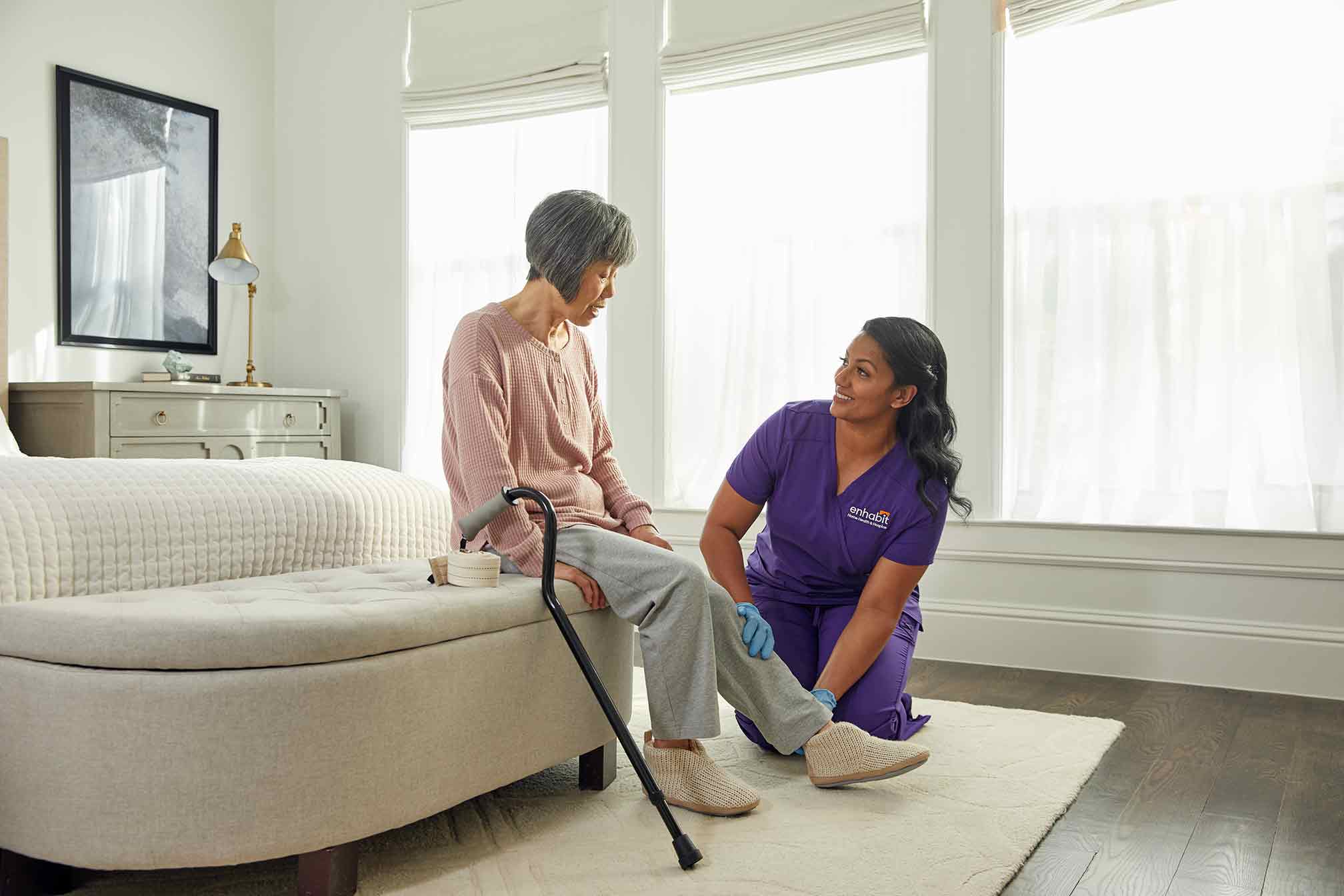There are often a lot of things to consider when recovering from surgery: “How will I get home from the hospital? Who will take care of me once I’m home? What does my recovery look like?”
While the recovery process looks different for each person, home health care allows you to receive personalized care in the comfort of home. It can also help prevent another trip to the hospital or an emergency room.
Transitioning home after surgery
Most home health agencies offer transitional services that help patients return home safely after surgery. By partnering with your physician, the home health care team is able to ensure you continue to receive the right level of care based on your recovery needs and any other medical conditions.
Transitional home health services can also coordinate and schedule follow-up physician appointments. Collaboration between your home health agency and physician ensures that all care team members are up to date on your recovery progress. This way, they can easily address any potential issues that may arise.
Recovering from surgery at home
Each person’s recovery process may look different. It’s important to receive the right care based on the type of surgical procedure you received. Whether it’s a knee replacement or heart surgery, the home health care team can provide skilled, specialized care that is specific to your needs.
Depending on the surgery, your physician may suggest therapy services to help you during the recovery process. The home health care team can provide physical therapy to help you regain strength and flexibility through exercise or walking programs, as determined by your physician. Physical therapy can also help reduce pain you may be experiencing as a result of your surgery.
Occupational therapy is also available to help you regain the skills you need to complete everyday activities. These activities of daily living can include cooking meals, getting dressed or even taking a shower. Home health occupational therapists can teach you how to use adaptive equipment that may assist you in completing these tasks.
Another important component of home health care is skilled nursing. Home health nurses can help keep your recovery on track. They can evaluate your home for potential fall risks and update your physician on any changes in your condition, as well as monitor your medications and your surgical site to help you stay free of infection.
In addition, home health nurses provide patient education to help you self-manage your recovery. They teach you what to watch for and who to call based on your symptoms.
Lowering hospital readmissions
There are a number of reasons patients may be readmitted to the hospital after surgery, including the risk of falling at home, infrequent contact with your physician or even a lack of understanding about your medications and the signs and symptoms of an infection.
Home health care helps educate patients on their recovery process and ensures frequent communication with their physician to help avoid unnecessary trips to the hospital. By using physician-specific protocols and evidence-based practices, the home health care team can help prevent hospital readmissions and help each patient receive the right level of care when it matters most.
Social Share
At Enhabit our patients are our number one priority. From providing the latest medical practices to building deep personal connections, we’re focused on upholding every patient’s dignity, humanity and sense of control on their health care journey.
Home health
Our home health services give patients access to the care they deserve in the comfort of their own homes. From disease and injury management to recovery from surgery, our clinicians help patients confidently achieve their healthcare goals.
Hospice care
Our hospice care services place importance on the comfort of every patient living with a terminal illness. Our caring professionals are dedicated to providing not just physical care, but spiritual and emotional support to every patient and their loved ones.

 Back to Resource library
Back to Resource library




